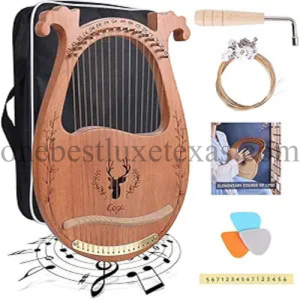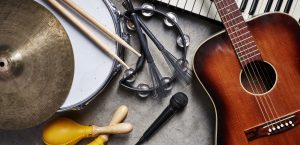Uncategorized
How to Take Care of Your Guitar: Essential Maintenance Tips
How to Take Care of Your Guitar: Essential Maintenance Tips
Owning a guitar is more than just a hobby—it’s a commitment to preserving the quality and sound of a cherished instrument. Proper guitar maintenance ensures that your instrument not only looks its best but also performs beautifully for years to come. At Onebestluxetexas, we value the bond between musicians and their instruments. Here’s a guide to help you care for your guitar, whether you’re a seasoned player or just starting out.
1. Keep Your Guitar Clean
Dust, oils from your hands, and environmental grime can affect your guitar’s appearance and sound. Regular cleaning prevents buildup and keeps your guitar in top shape.
Tips for Cleaning:
- Use a soft, lint-free cloth to wipe down your guitar after each use.
- For the body, use a guitar-specific cleaner to remove fingerprints and smudges.
- Clean the strings with a string cleaner or a microfiber cloth to prolong their lifespan.

2. Store Your Guitar Properly
Where and how you store your guitar significantly impacts its condition. Proper storage protects it from environmental damage.
Storage Best Practices:
- Keep your guitar in a case (preferably hard) when not in use to protect it from dust and accidents.
- Avoid placing it near heaters, air conditioners, or windows to prevent warping from temperature and humidity fluctuations.
- Use a guitar stand or hanger to keep it safely displayed.
3. Maintain Optimal Humidity Levels
Wooden guitars are sensitive to changes in humidity, which can cause warping, cracking, or shrinking.
How to Control Humidity:
- Aim for a humidity level between 40% and 60%.
- Use a guitar humidifier in dry climates to prevent wood from drying out.
- Consider a dehumidifier if you live in a particularly humid area.
4. Change Strings Regularly
Old strings lose their tone and can even damage your guitar’s fretboard over time. Regularly replacing them ensures the best sound and playability.
When to Change Strings:
- Change strings every 3-4 months if you play casually. For frequent players, consider changing them every 4-6 weeks.
- Look for signs of rust, discoloration, or dull sound to know it’s time for a change.
String Changing Tips:
- Use the correct string gauge for your guitar type.
- Replace all strings at once for even tension and sound.
5. Check and Adjust the Neck
The neck of your guitar is critical for playability. Over time, environmental factors and string tension can cause the neck to bow or warp.
Maintenance Tips:
- Use a straightedge or sight down the neck to check for warping.
- Adjust the truss rod carefully if the neck is bowed—consult a professional if unsure.
- Avoid overtightening, as this can cause irreversible damage.
6. Care for the Fretboard
The fretboard is one of the most heavily used parts of the guitar. Regular maintenance helps prevent wear and tear.
Fretboard Maintenance:
- Clean the fretboard with a damp cloth during string changes.
- Apply a small amount of fretboard oil (only for rosewood or ebony fretboards) to prevent drying and cracking.
- Avoid using oil on maple fretboards; a damp cloth will suffice.
7. Inspect the Hardware
Tuning pegs, bridges, and nuts require periodic checks to ensure everything is functioning correctly.
Hardware Care Tips:
- Tighten loose tuning pegs and screws gently to avoid rattling or buzzing.
- Check the bridge and nut for wear; replace parts if necessary.
- Use a light lubricant on moving parts like tuning machines to ensure smooth operation.
8. Polish the Guitar Body
A polished guitar not only looks great but also keeps the finish protected from scratches and grime.
Polishing Tips:
- Use a non-abrasive guitar polish specifically designed for your guitar’s finish.
- Avoid household cleaners, as they may damage the wood or finish.
- Apply polish with a soft cloth and buff gently.
9. Regular Professional Check-Ups
Even with diligent care, your guitar will benefit from occasional professional maintenance. Experts can address issues that might not be visible to the untrained eye.

When to Seek Professional Help:
- If your guitar develops buzzing sounds or uneven frets.
- For truss rod adjustments or fret leveling.
- To install new pickups or repair internal electronics.
10. Transport Your Guitar Safely
Traveling with your guitar requires extra precautions to prevent damage.
Travel Tips:
- Use a padded or hard-shell case for transport.
- Loosen the strings slightly if flying to avoid tension changes due to air pressure.
- Place a towel or cushion inside the case to prevent movement.
Why Guitar Maintenance Matters
Regular guitar care not only prolongs the life of your instrument but also:
- Preserves its sound quality.
- Maintains its aesthetic appeal.
- Ensures a smooth and enjoyable playing experience.
Discover Quality Guitar Accessories at Onebestluxetexas
At Onebestluxetexas, we offer a wide range of guitar maintenance accessories, from cleaning kits to humidifiers, ensuring your instrument remains in top condition. Whether you’re a beginner or a professional, our collection will help you keep your guitar looking and sounding its best.

